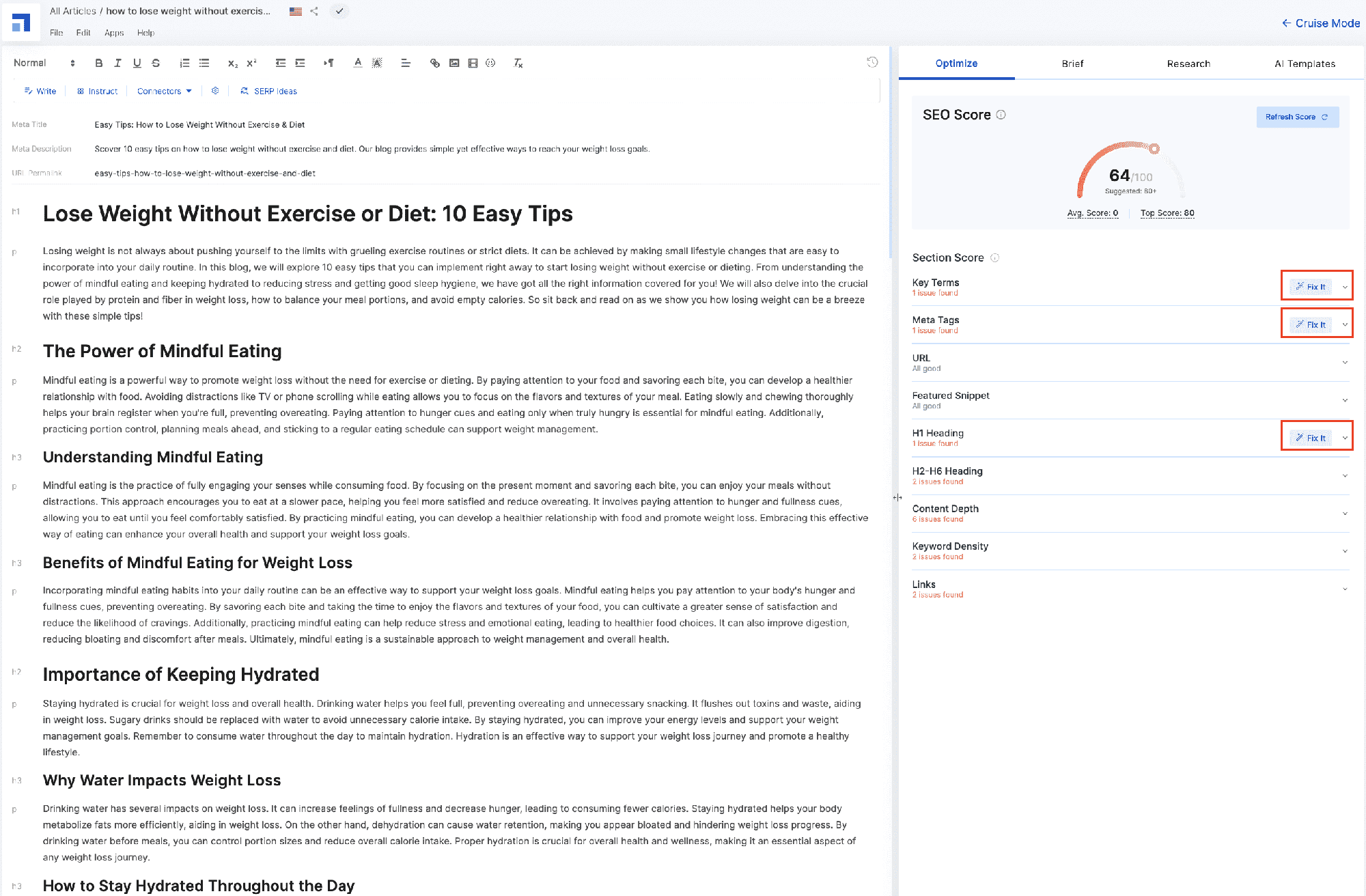Aphorisms, those short and memorable statements, have been used in writing since ancient times. They simplify complex ideas and make readers think. Whether you’re a writer or a reader, you’ve likely come across aphorisms that have stuck with you over the years. In this article, we’ll explore the definition of aphorisms and delve into why they hold such power throughout the ages. We’ll also provide examples of aphorisms to give you a better understanding of this literary device.
Aphorisms are concise and memorable statements that convey profound truths. They simplify complex ideas and make readers think. By incorporating aphorisms into your writing, you can elevate its impact and resonate with your audience. Aphorisms are easily remembered and can be passed on, increasing their impact over time. They often utilize metaphors and creative imagery to convey ideas and can serve as mantras during times of crisis.
Here are the key takeaways:
- Aphorisms simplify complex ideas and make readers think.
- They are easily remembered and can have a lasting impact.
- Aphorisms often use metaphors and creative imagery to convey ideas.
- They can serve as mantras during difficult times, providing comfort and clarity.
- By incorporating aphorisms, you can elevate the impact of your writing.
- Use aphorisms sparingly and choose ones that align with your purpose and audience.
Definition of aphorism
An aphorism is a concise statement that expresses a general truth. It is definitive and unconditional, describing what is rather than what could be. Aphorisms inspire people to question their beliefs and reconsider forgotten ideas. They stand out from clichés with their thought-provoking nature and from adages and proverbs with their brevity.
The power of aphorisms lies in their ability to be easily remembered. People are more likely to pass on short statements, increasing their impact over time. Aphorisms often appeal to a wide audience across cultures because they represent general truths rather than specific ones.
In addition to their succinctness, aphorisms often utilize metaphors and creative imagery to convey ideas. They simplify abstract concepts by using concrete imagery that readers can easily understand. Skilled writers expand on these familiar phrases to explore more complex ideas.
Aphorisms can also serve as mantras during times of crisis, providing comfort and reminding individuals not to let fear overpower them. Their timeless wisdom can bring clarity and perspective when facing unfamiliar or frightening situations.
By incorporating aphorisms into your writing, you can elevate your work’s impact and make it resonate with your audience. These powerful literary devices are effective ways to tie together different ideas or explain complex concepts concisely.
History and Origins of Aphorisms
Aphorisms have a rich history that can be traced back to ancient times. These concise sayings have been used throughout history to convey profound wisdom and insights. Let’s explore their origins and how they have evolved over time.
Ancient Greek origins and influence of Hippocrates
The word “aphorism” itself can be traced back to Ancient Greece, with its origins in the medical writings of Hippocrates. Hippocrates, often referred to as the father of medicine, used aphorisms to convey important medical truths and principles.
One of Hippocrates’ most famous aphorisms is “Life is short, art is long.” This aphorism reflects the fleeting nature of life and the enduring impact of artistic creation. His aphorisms were not only concise but also conveyed deep truths about medicine and human existence.
Widening usage and development of aphorisms over time
Over time, aphorisms became more widely used and were not limited to just medicine. They began to encompass a wide range of topics and were used to express universal truths in concise and memorable ways.
Aphorisms started to find their way into literature, philosophy, and everyday conversation. They became powerful tools for conveying complex ideas in a succinct and accessible manner.
Today, aphorisms continue to play an important role in communication. They have become a popular tool for writers, bloggers, and speakers to convey profound insights and engage with their audiences.
Whether it’s using an aphorism to make your point or simply appreciating the wisdom they offer, exploring aphorisms can add depth and richness to your writing and conversations.
Characteristics and Types of Aphorisms
Aphorisms are concise and memorable statements that express a universal truth or moral principle. They are often witty or humorous and can be found in various forms of writing, including blogs. Here are some key characteristics and types of aphorisms:
Conciseness and brevity of aphoristic statements
Aphorisms are known for their brevity and ability to convey profound meaning in just a few words. They capture complex ideas in a succinct manner, making them memorable and impactful. For example, “Actions speak louder than words” is a widely recognized aphorism that emphasizes the importance of actions over mere words.
Differentiating aphorisms from adages and proverbs
While aphorisms, adages, and proverbs share similarities, they have distinct characteristics. Adages are widely accepted truths that have become ingrained in popular culture over time. Proverbs, on the other hand, offer advice or express a moral lesson in a poetic manner.
Aphorisms differ from adages and proverbs in that they are more concise and tend to be more direct in their message. They often use striking imagery or metaphors to convey their meaning. Examples of aphorisms include “The early bird catches the worm” and “Knowledge is power.”
In blogging, aphorisms can be used to make a point succinctly or add depth to the content. Incorporating an aphorism can engage readers, provoke thought, or provide a memorable takeaway from the blog post.
With their ability to condense complex ideas into brief statements, aphorisms can enhance your blog content and make it more impactful for readers.Famous Aphorism Examples in Literature and Popular Culture
Aphorisms are concise, memorable statements that convey a profound truth or observation about life. They have been used throughout history to encapsulate wisdom in a concise and memorable way. Here are some famous aphorism examples from literature and popular culture.
Shakespeare’s What’s in a name? from Romeo and Juliet
In his play Romeo and Juliet, Shakespeare famously wrote “What’s in a name? That which we call a rose by any other name would smell as sweet.” This aphorism emphasizes the idea that names are merely labels and do not define the true essence of a person or thing.
George Herbert’s A penny saved is a penny earned
George Herbert’s aphorism “A penny saved is a penny earned” highlights the importance of saving money. This saying emphasizes that it is crucial to save money whenever possible, as each saved penny adds to one’s wealth.
Yoda’s Do or do not. There is no try. from Star Wars
In the Star Wars franchise, the character Yoda famously says “Do or do not. There is no try.” This aphorism encourages taking action and committing fully to achieving a goal rather than simply attempting it with half-hearted effort.
These famous aphorisms demonstrate the power of concise statements to convey profound insights and truths about life. They have become widely recognized and quoted, highlighting their enduring impact and relevance in popular culture
Modern Aphorisms in Everyday Life
Aphorisms are concise statements that convey a profound truth or wisdom in a memorable and impactful way. They have been used throughout history to impart knowledge and share insights. In today’s world, aphorisms continue to play a role in various aspects of life, including blogging.
Benjamin Franklin’s “An ounce of prevention is worth a pound of cure”
This aphorism emphasizes the importance of taking proactive measures to prevent problems rather than dealing with the consequences later. In the context of blogging, it encourages bloggers to invest time and effort in planning, research, and preparation before publishing their content. By ensuring the quality and relevance of your blog posts from the start, you can save yourself from the need to make extensive revisions or fixes later.
Abraham Lincoln’s “Actions speak louder than words”
This well-known aphorism highlights the significance of actions over mere words. In the realm of blogging, it serves as a reminder that the quality and value of your content ultimately speak for themselves. It encourages bloggers to focus on producing informative, engaging, and valuable posts rather than simply making empty promises or using flashy language. By delivering on your readers’ expectations with actual content, you can build credibility and earn their trust.
Lady Mary Montgomerie Currie’s “All things come to those who wait”
Lady Mary Montgomerie Currie’s aphorism suggests that patience is rewarded in the long run. In blogging, this resonates with the idea that success does not happen overnight. It takes time, perseverance, and consistent effort to build a loyal readership and establish yourself as an authority in your niche. This aphorism reminds bloggers to stay patient and committed to their writing journey, knowing that their hard work will eventually pay off.
Incorporating these aphorisms into your blog content can add depth and wisdom to your writing. By exploring and leveraging the power of aphorisms, bloggers can engage and resonate with their audience on a deeper level.
Top 5 AI Writer for In 2025
Discover the top 5 AI writers that can help you create SEO optimized articles to achieve higher rankings in SERP. From thorough analysis to skillfully crafting content, these AI writers have got you covered.

#1 Surfer SEO

#2 Koala AI Writer

#3 Scalenut

#4 Katteb Ai

#5 Jasper Al
Usage of Aphorisms in Blogging and Writing
Aphorisms are powerful tools that bloggers and writers can utilize to enhance their content. These concise and memorable statements convey universal truths and provide memorable messages that resonate with readers.
Incorporating aphorisms to convey universal truths and memorable messages
By incorporating aphorisms in your blog posts or writing, you can effectively convey complex ideas or concepts in a succinct manner. These aphorisms provide readers with a clear and concise message that can easily be remembered and shared. For example, using an aphorism like “Actions speak louder than words” can convey the importance of taking action rather than just talking about it.
Using aphorisms to summarize central themes and provide guidance
Aphorisms can also be used to summarize central themes in your blog posts or writing. By using an aphorism that encapsulates the main idea or message of your content, you can provide readers with a clear takeaway point. Additionally, these aphorisms can also act as guidance for readers, providing them with advice or wisdom.
Incorporating aphorisms in your writing not only adds depth and richness to your content but also makes it more engaging and impactful for readers. So, consider using aphorisms to enhance your blog posts or writing and create a lasting impression in the minds of your audience.
Dos and Don’ts of Using Aphorisms in Blogging
Using aphorisms in your blog content can add depth and insight to your writing. However, it’s important to use them correctly to avoid clichés and overuse. Here are some dos and don’ts when incorporating aphorisms into your blog:
Selecting the right aphorism for your content
- Do choose aphorisms that align with the purpose and theme of your blog post. Consider the message you want to convey and find an aphorism that supports it.
- Do use aphorisms that are relevant and relatable to your target audience. Consider their interests, values, and background when selecting an aphorism.
- Don’t use overly complex or obscure aphorisms that may confuse your readers. Opt for ones that are easy to understand and resonate with your audience.
Avoiding overuse and clichéd usage in writing
- Do use aphorisms sparingly. Overusing them can make your writing seem clichéd and unoriginal. Use them to emphasize a particular point or provide a fresh perspective.
- Don’t rely solely on aphorisms to convey your message. Use them as supporting elements rather than the main focus of your content.
- Do personalize the aphorism by adding your own insights or commentary. This helps to make it more unique and relevant to your specific topic.
By following these dos and don’ts, you can effectively incorporate aphorisms into your blog content and enhance the quality of your writing. Remember, originality and relevance are key when using aphorisms in blogging.





